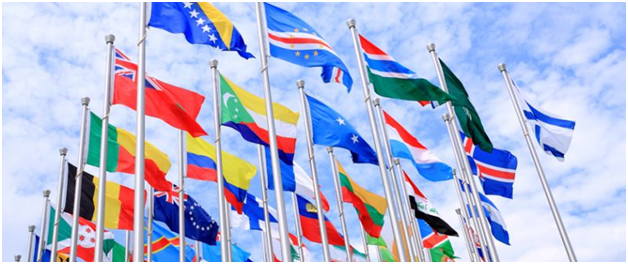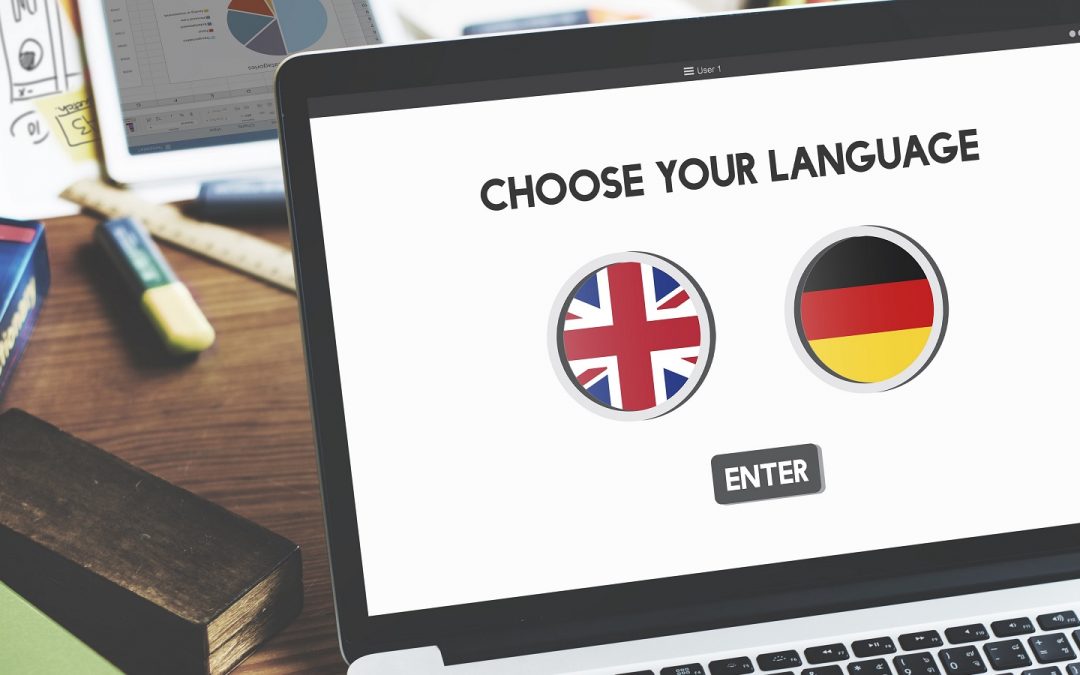It’s a great big world out there and one thing that has made this world accessible to all is the internet. Perhaps the power of the internet can best be defined by the HUGE audience waiting on the other end when a business seeks to communicate its services. While companies use other tactics to attract customers, websites are by far the most effective and sure-shot way of ensuring their services are communicated to the target audience in no time. Surely, leaving these websites untranslated is too much of a risk in the world of multilingual services. Reaching out to customers is one of the many reasons why you should translate your websites into multiple languages.
1. Greater the number of languages, greater will be the audience:
This is the first and most important reason why companies should opt for multilingual websites. The rule is simple—more languages mean more customers. Approximately 70% of the internet users do not speak English, which means they will understand—and respond to—content that is presented to them in their native language. In fact, customers will prefer to purchase a brand that speaks to them in their native language, rather than the one that is not translated. Customers are not only easy to reach but also easy to persuade if your website is translated into their native language.
2. It offers you a differentiating point:
If you own a brand that is doing extremely well, and you have a respectable customer base as well, but no presence outside your local market, chances are your brand is missing out on a big chunk of opportunities. When it comes to competing with your rival brands, one cannot miss out the role that a multilingual website will play in ensuring you are ahead in the race. This is because customers are more likely to opt for a brand that gives them the comfort of their native language. And by translating your website in multiple languages, you can bet these customers will choose your company over brands that remain untranslated—giving you a differentiating point from the rest.
3. You are easier to track with multilingual website:
Did you know that your company website stands a greater chance of being tracked through Google if it is translated in multiple languages? If your company has invested time and resources in understanding digital marketing strategies, chances are you are already aware of the importance of placing your website on the first pages of search engines. When an internet user searches for a website in his own native language, he should be able to track your page too. It is a lot easier to rank high on the Google search results if you have a website that is translated into the language of the target audience.
4. You can track your website traffic:
Drawing on the last point, once you have a multilingual website to your credit that ranks high on search results, you need to analyze where most of the traffic is coming from. By examining the website analytics, you can always keep track of the online traffic on your website and answer some of the most critical questions—are global customers actually taking out time to navigate your website? Or are they bouncing off as soon as your website loads up? Are they even converting? If yes, how can you satisfy them? If no, what more can be done?
A multilingual website will answer these questions for you so you would not have to go through an extensive effort to do market research on your website users. All you need to do is search for a reliable website translation service and you are good to go!

5. Your Brand stands out from the crowd:
In a world where there are multiple brands, it often becomes difficult to make your brand stand out from the rest, but that can be done easily through one thing—a multilingual website. According to market research statistics, customers are ready to pay a high premium to work with brands that speak to them in their own language. In fact, many of them will prefer to buy a brand that is expensive but translated into their native language, rather than a brand that is cheap and not translated.
A multilingual website will do more for your brand recognition than the combined marketing efforts you do in foreign markets. And unless you speak to customers in their own language, it is difficult to strike a chord with them as well as build a trust that is at the core of a positive brand relationship.
6. It lets you expand into more markets:
Are you aware that in 2015, it was necessary for companies to support 25 languages in order to reach a wide number of internet users, but by 2020, companies will need to localize their websites into 48 languages in order to reach their customers?
A multilingual website stands a better chance of getting noticed in the international market. Sounds impossible, right?
Wrong. While English language may be considered as the universal language of communication, it ranks third in terms of the highest number of native speakers among all the languages—this means there are more languages out there which have a greater number of a native speaker. And those are Chinese Mandarin with 955 million and Spanish with 405 million native speakers. If your website is translated into Chinese Mandarin and Spanish, chances are you will be able to attract a wide audience in China and Spain too.
7. You get the right feedback for your progress:
While you are aware of the fact that online marketing tactics can give you an edge in your local market while lending you an opportunity to connect with your customers, gleaning valuable feedback for your progress, you cannot rule out the feedback from those customers who don’t speak your language. A multilingual website can solve this problem for you, creating a point of contact with foreign website users, creating an impression on them that they are likely to pass on to you. Valuable feedback from these foreign markets can give you an unprecedented chance to improve your website, ultimately improving your brand. Translating your website into multiple languages can help you reach more audiences in their native language and increases the website’s overall conversion rate.
The Last Word:
Translating your website into multiple languages is not only necessary for your business progress, but it can also give you the benefits that will make you stand out from the rest of the crowd. Your website content will be viewed by international customers and it will literally give you an edge over those companies which miss out on the golden opportunity of going global.



